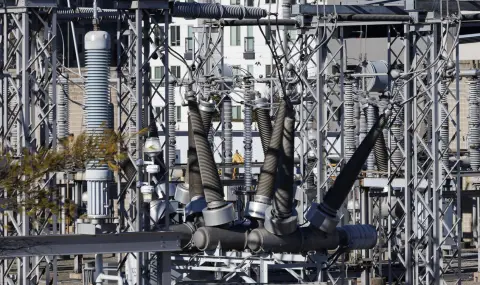We are witnessing an unprecedented shift in economic strata. The war in Ukraine has fundamentally changed the structure of the world economy, and we have yet to see the results of what is currently happening with tariffs and the policies of US President Donald Trump.
„Everyone suffers from trade wars, but first of all Bulgaria. This war will hit Germany, which is the locomotive of the European economy. When bad things happen to them, terrible things happen to us. This international war that began between Europe, China and America will definitely affect Bulgaria, and very severely“, predicts Eng. Dimitar Beleliev, Chairman of BASEL.
We do not need to take the entire economy of the entire country as an example. We can take our electrical industry for example to see how what is happening in the world is reflected in our country. This is a sector with nearly 1,250 companies, of which 250 are more significant and cover 95% of the turnover in the sector, which is nearly 6 billion EUR per year. It employs 57,000 people. The share of exports in the sector compared to the total exports of the processing industry is about 11%.
Exports are mainly to EU countries - 70%. Of this, 23% is for Germany, Italy and the Czech Republic, 6.4% each.
However, the redistribution of markets on a global scale also affects Bulgaria. A decline in exports is expected for 2024. At the end of October last year, it amounted to 3.2%. Among the main reasons for this is that Germany is today the weak point of the European economy, and this is starting to affect the other countries along the chain that are sub-suppliers of components and modules. “For 2023, Germany has -0.3% economic growth, and in 2024 -0.2%. The negative trend continues and this also affects the countries that work with Germany. The German economy has received 3 serious blows in recent years - the green deal, the coronavirus and the sanctions against Russia, which have actually turned against European industries“, says BASEL CEO Eng. Orlin Dimitrov.
“The situation in other European countries is no better than that of Germany. We are talking about France, Spain and Italy. Today, Eastern Europe looks better than Western Europe. The fact that our economy is over 70% connected to the EU definitely does not help us. The problem is not ours, but purely European“, admitted Eng. Ivo Rusev.
A lot of multinational companies positioned in Bulgaria are developing very well today. It turns out that they all sell to the USA, Canada and countries outside Europe.
The Bulgarian electrical industry also has problems. Some of them, such as finding staff, overlap with those from other sectors of the economy.
There are two main reasons for the large labor shortage. One is that the staff in the state sector and state-owned enterprises are extremely inflated. The second is that salaries are quite attractive and almost no one wants to work in private companies, comments from the electrical industry.
“The reason for the lack of labor is also the difficulty of hiring people from third countries that are outside the EU“, added Eng. Beleliev.
There is a problem with regard to public procurement. Over 60% of public tenders are won by countries outside the EU, such as China and Turkey. BASEL appeals to the Bulgarian state to introduce the practice of Germany, Romania and France of excluding countries that have not signed CEFTA from participating in tenders. This will stimulate Bulgarian production and competitiveness.
„In most European countries with a developed electrical industry, the main part of the business receives support from the state. In Bulgaria, our market is too open and even stimulates the participation of foreign companies that are not European. This problem is very serious and, given the changing situation on a global scale, the state must take measures. What they will be is a matter of discussion.
Last but not least, the problem is that there is no state policy to support the development of the industry and that European programs are stalling. “Potential investors cannot decide whether to invest their money here because, in addition to the general uncertainty, they do not even know what the taxes will be and why interest in European programs is so low“, commented Eng. Beleliev.
